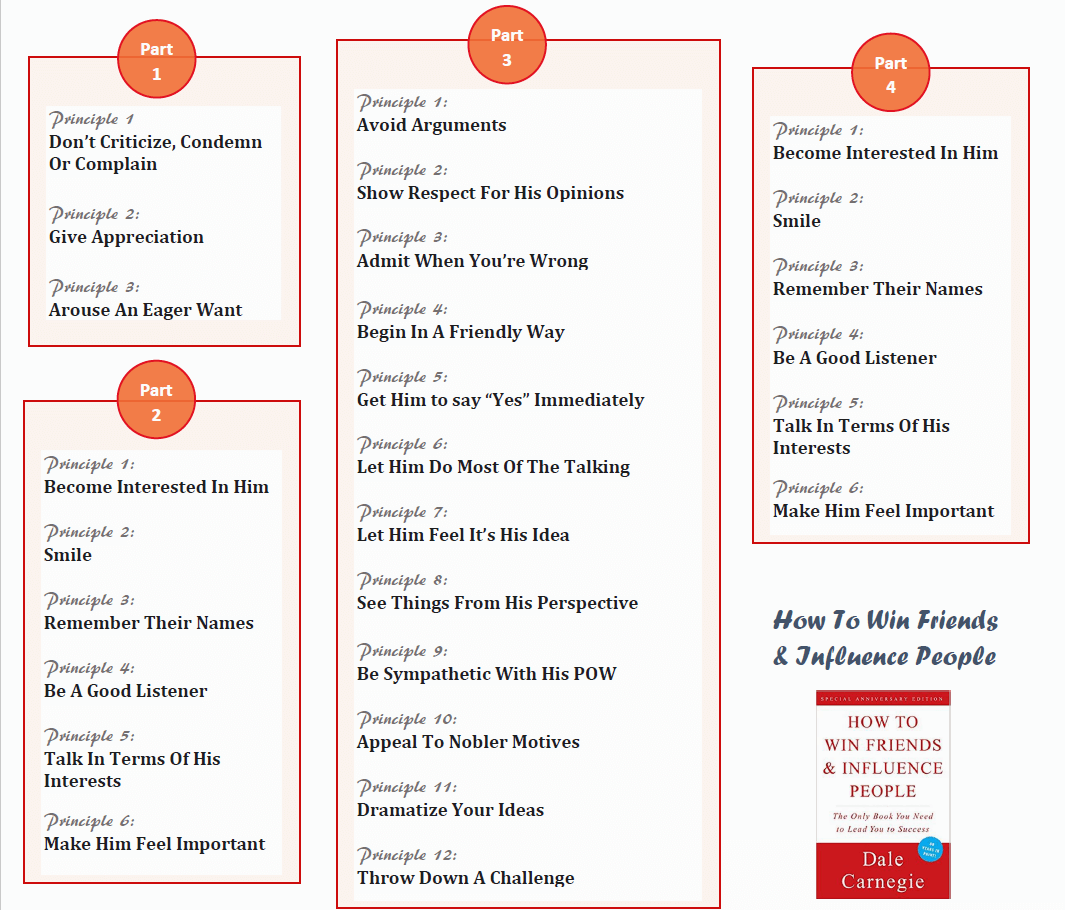In this article, you’ll find a detailed recap of the book “How to Win Friends and Influence People.” Filled with valuable lessons, captivating stories, and practical examples, this book offers timeless advice on building meaningful relationships and effectively influencing others. Whether you’re looking to enhance your communication skills, improve your leadership abilities, or simply connect with people on a deeper level, this book provides valuable insights and strategies to help you achieve your goals. So buckle up and get ready to discover the secrets of winning friends and influencing people!
Lesson 1: The Importance of People Skills
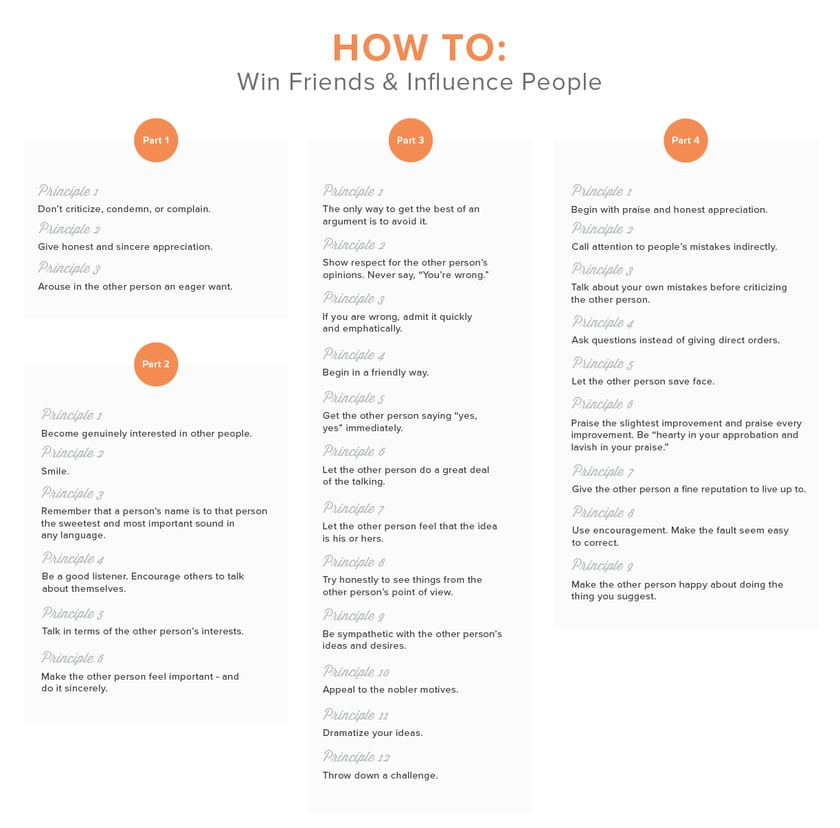
Understanding the Value of Interpersonal Skills
In today’s fast-paced and interconnected world, the value of interpersonal skills cannot be overstated. The ability to effectively communicate, connect, and build relationships with others is crucial for both personal and professional success. Interpersonal skills encompass a wide range of abilities, including active listening, empathy, and effective communication. These skills allow us to understand and relate to others, fostering positive and meaningful connections.
The Impact of Positive Relationships
Positive relationships have a profound impact on our lives. They contribute to our happiness, emotional well-being, and overall satisfaction. When we have strong personal and professional relationships, we can rely on others for support, guidance, and inspiration. Additionally, positive relationships enable collaboration, creativity, and productivity, leading to better outcomes in our personal and work lives. By investing in developing and nurturing these relationships, we can create a network of individuals who uplift and support us in our journey.
The Role of Empathy in Building Connections
Empathy, the ability to understand and share the feelings of others, is a cornerstone of effective interpersonal skills. When we empathize with someone, we are able to truly connect on a deeper level and foster genuine understanding. By putting ourselves in someone else’s shoes, we gain insight into their perspective, experiences, and emotions. This deepened understanding allows us to respond with compassion and kindness, strengthening the bonds between us. Empathy opens the door to authentic connections and paves the way for successful interactions.
Lesson 2: Fundamental Techniques in Handling People
Avoiding Criticism and Complaining
Criticism and complaining can quickly sour a relationship and hinder effective communication. Instead of focusing on the negatives, it is more productive to emphasize the positives and offer constructive feedback. By reframing criticism as a suggestion for improvement and delivering it in a considerate and respectful manner, we can foster an environment of growth and collaboration.

Giving Sincere Appreciation
One of the most powerful ways to build positive relationships is by giving sincere appreciation. Recognizing and acknowledging the efforts, achievements, and qualities of others makes them feel valued and respected. By expressing gratitude and showing genuine interest in their contributions, we strengthen the bonds between us. Sincere appreciation creates a positive atmosphere and motivates people to continue their efforts.
Arouse an Eager Want
At times, it may be necessary to influence others to see things from our perspective. Instead of employing force or manipulation, a more effective approach is to arouse an eager want. By understanding others’ needs and desires, we can tailor our communication to resonate with their interests and motivations. When we present ideas or solutions in a way that aligns with their aspirations, we increase the likelihood of gaining their support and cooperation.
Lesson 3: Winning People Over to Your Way of Thinking
The Power of Listening and Understanding
Listening attentively and seeking to understand others’ viewpoints is a crucial skill in winning people over to our way of thinking. By actively listening, we convey respect and show that their opinions are valued. Understanding the underlying motivations and concerns of others enables us to present our ideas in a way that addresses their needs and interests, increasing the likelihood of a mutually beneficial outcome.
Appealing to Others’ Self-Interest
To effectively influence others, it is essential to appeal to their self-interest. People are naturally inclined to prioritize their own needs and desires. By demonstrating how our ideas or suggestions align with their goals or offer personal benefits, we can capture their attention and make a persuasive case. When others perceive that our proposals will positively impact their lives, they are more likely to support and champion our ideas.
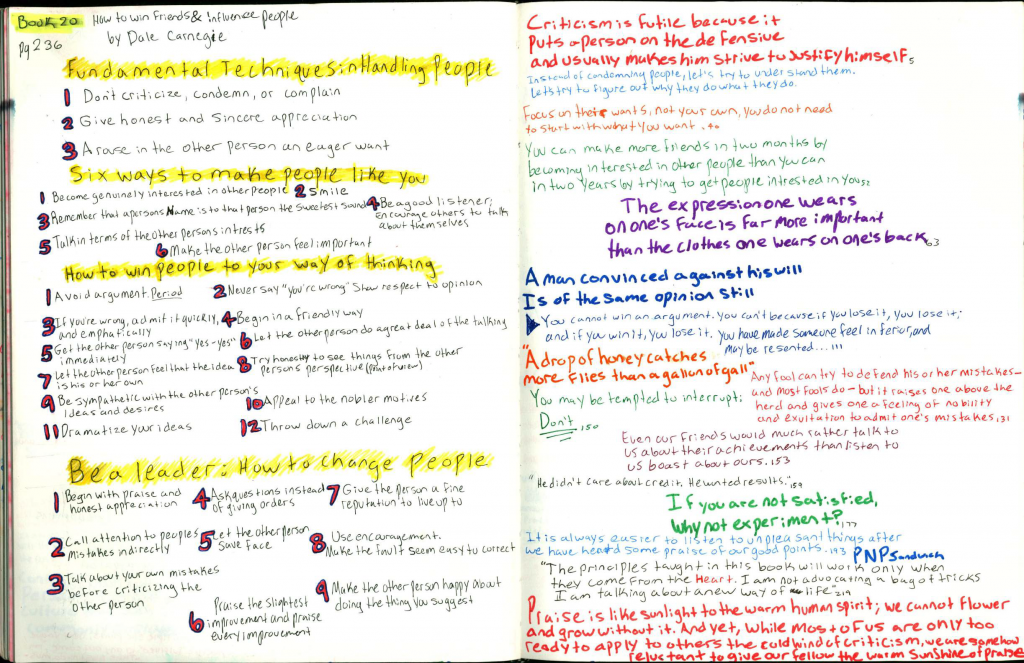
Presenting Ideas Diplomatically
The manner in which we present our ideas significantly impacts how they are received. Diplomacy involves presenting our thoughts in a considerate, respectful, and non-confrontational manner. By demonstrating empathy, understanding, and an open mind, we create an environment conducive to constructive dialogue. Diplomatic communication encourages others to engage with our ideas and fosters a sense of collaboration and mutual respect.
Lesson 4: Influencing Others without Offending
Creating a Friendly Environment
A friendly environment is essential in cultivating positive and harmonious relationships. By fostering a warm and welcoming atmosphere, we set the stage for open communication and collaboration. Smiling, using people’s names, and extending small acts of kindness can go a long way in making others feel comfortable and valued. When people feel at ease, they are more receptive to our influence and more willing to engage in productive interactions.
Offering Praise and Recognition
Praise and recognition are powerful tools for influencing others without offending. By acknowledging and celebrating the efforts and achievements of others, we uplift and motivate them. When people feel acknowledged and appreciated, they become more open to listening to our ideas and suggestions. Genuine praise and recognition not only boost morale but also create a positive environment that fosters growth and cooperation.
Inspiring Change through Encouragement
Instead of trying to force change upon others, we can inspire change through encouragement. By offering support, encouragement, and guidance, we foster a sense of empowerment and confidence in others. When people feel capable and supported, they are more likely to embrace change willingly. By recognizing their progress, highlighting their strengths, and offering constructive feedback, we create an environment conducive to growth and positive transformation.
Lesson 5: Handling Difficult Interactions with Skill
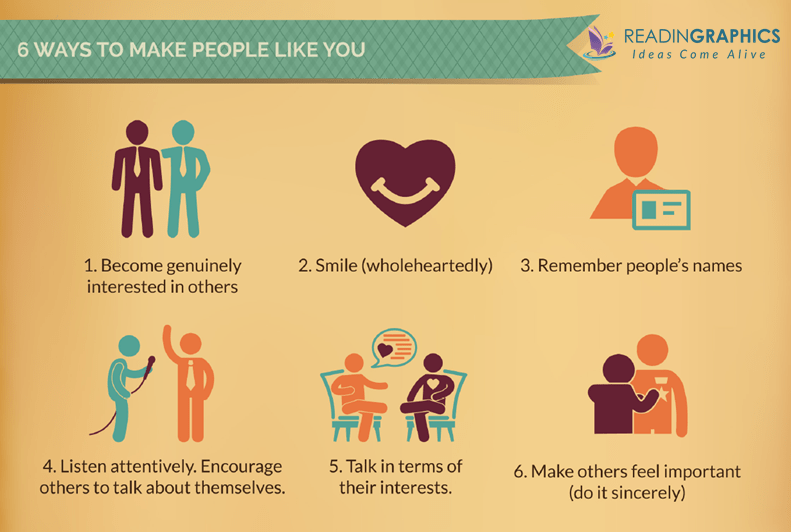
Dealing with Criticism and Complaints
It is inevitable that we will encounter criticism and complaints from others at some point. Handling such interactions with skill is crucial in maintaining positive relationships. Instead of becoming defensive or dismissive, we can respond with empathy and open-mindedness. By actively listening and seeking to understand the concerns of others, we demonstrate respect and a genuine desire to find a resolution. Responding in a calm and constructive manner encourages productive dialogue and helps to dissipate tension.
Providing Constructive Feedback
Providing constructive feedback is an essential skill in fostering growth and improvement. When offering feedback, it is important to focus on specific behaviors or actions, rather than attacking the individual. By offering suggestions for improvement in a respectful and considerate manner, we create an environment that promotes learning and development. Constructive feedback should always be given with the intention of supporting and helping the individual, rather than criticizing or belittling them.
Resolving Conflicts Peacefully
Conflicts are a natural part of any relationship, but how we handle them determines the outcome and impact on the relationship. To resolve conflicts peacefully, it is important to approach the situation with empathy, understanding, and a willingness to find a mutually beneficial solution. Active listening, expressing emotions calmly, and seeking compromise are key strategies for peaceful conflict resolution. By focusing on finding common ground and maintaining respect for one another, we can preserve relationships and foster understanding.
Lesson 6: Becoming a Leader and Influencer
Developing Leadership Qualities
Becoming a leader involves developing a set of qualities that inspire and motivate others. A leader displays integrity, humility, and the ability to effectively communicate and delegate tasks. By leading by example, setting clear goals, and providing guidance and support, leaders create an environment that promotes growth, productivity, and collaboration. Developing leadership qualities enables us to influence and inspire others, leading to successful outcomes and positive relationships.
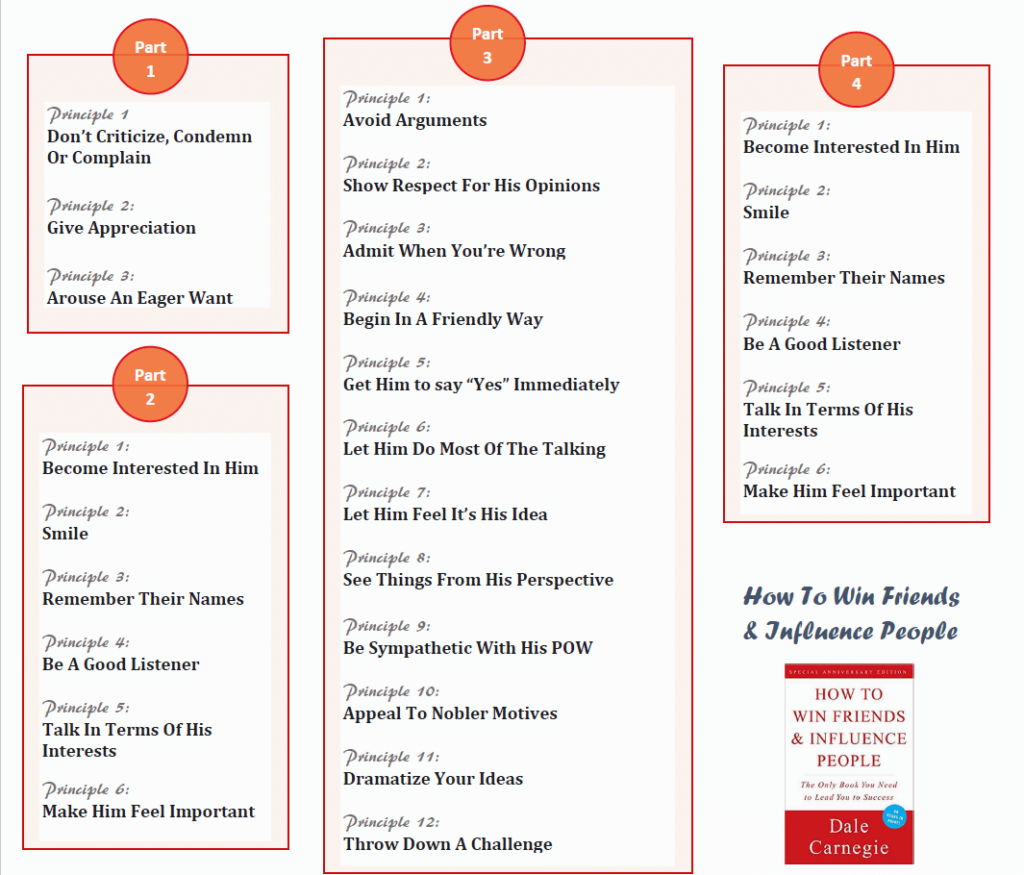
Motivating Others to Achieve Success
Motivating others is an essential aspect of leadership and influence. By understanding the needs and aspirations of those we aim to motivate, we can tailor our approach to resonate with them. Setting challenging yet attainable goals, offering support and resources, and recognizing and celebrating achievements are effective ways to inspire and motivate others. When people feel motivated and empowered, they are more likely to actively contribute to the success of the team or organization.
Gaining Loyalty and Cooperation
Building loyalty and cooperation among team members or colleagues is crucial for effective leadership and influencing. By demonstrating trustworthiness, authenticity, and transparency, we foster an environment of mutual respect and cooperation. Encouraging open communication, providing opportunities for growth and development, and acknowledging and rewarding contributions are powerful ways to gain loyalty and cooperation. When people feel valued and supported, they are more committed and invested in the shared goals.
Story 1: Influencing Decision-Making
How John Persuaded His Colleague to Support His Idea
In the workplace, it is often necessary to influence others to gain support for our ideas. John encountered this challenge when he proposed a new project to his colleague, Sarah. Instead of resorting to force or manipulation, John employed genuine interest and empathy. He took the time to understand Sarah’s concerns and challenges, demonstrating that he valued her perspective. By presenting his idea in a way that addressed her needs and aspirations, John won Sarah’s support and collaboration.
Using Genuine Interest and Empathy to Garner Support
John’s story highlights the power of genuine interest and empathy in influencing others. By taking the time to understand and address the concerns and motivations of those we aim to influence, we create a foundation of trust and mutual understanding. Genuine interest and empathy allow us to tailor our approach and effectively communicate the benefits and potential of our ideas, ultimately leading to successful outcomes and strengthened relationships.
Story 2: Resolving a Conflict Peacefully
How Sarah Diffused Tension at the Workplace
Conflict is a natural part of any workplace, and resolving it peacefully is essential for maintaining positive relationships. Sarah faced a conflict with a colleague who had different opinions on a project. Instead of escalating the conflict, Sarah chose to diffuse the tension by actively listening and showing understanding. She acknowledged her colleague’s viewpoint, expressed her own thoughts calmly, and sought common ground. Through open dialogue and a willingness to find a compromise, Sarah successfully resolved the conflict and preserved the relationship.
The Power of Active Listening and Showing Understanding
Sarah’s story highlights the power of active listening and showing understanding in conflict resolution. By actively listening to the concerns and perspectives of others, we demonstrate respect and create a safe space for open dialogue. Showing understanding and acknowledging differing viewpoints reduces defensiveness and allows for the exploration of common ground. By seeking constructive resolutions, we foster positive relationships and maintain a harmonious work environment.
Practical Example 1: Building Relationships through Kindness
Remembering Birthdays and Celebrating Achievements
Building relationships requires effort and genuine care. A practical way to foster connections is by remembering important dates, such as birthdays, and celebrating achievements. By taking the time to acknowledge these milestones, we demonstrate that we value and appreciate the individuals in our lives. Small acts of kindness, such as sending a thoughtful note or a small gift, can go a long way in strengthening bonds and creating a positive and inclusive environment.
Taking Time to Engage in Genuine Conversations
Another practical example of building relationships through kindness is by taking the time to engage in genuine conversations. Showing interest in others’ lives, asking about their well-being, and actively listening to their stories cultivates a sense of belonging and fosters a deeper connection. By creating space for meaningful conversations and demonstrating a genuine interest in others, we build lasting relationships based on trust, respect, and understanding.
Practical Example 2: Motivating Through Recognition
Implementing an Employee of the Month Program
Motivating employees is crucial for a productive and successful work environment. An effective way to recognize outstanding efforts and motivate individuals is by implementing an Employee of the Month program. This program acknowledges and celebrates exceptional performance, highlighting the contributions and achievements of an employee each month. The recognition not only boosts morale but also motivates others to strive for excellence, creating a culture of continuous improvement and success.
Publicly Acknowledging Outstanding Efforts
Publicly acknowledging outstanding efforts is another practical example of motivating through recognition. During team meetings or company-wide gatherings, taking the time to verbally recognize and appreciate individuals’ hard work sends a powerful message. By publicly acknowledging the contributions and achievements of others, we inspire not only the recognized individuals but also motivate the whole team. Public recognition fosters a sense of pride and a shared commitment to success.
In conclusion, the lessons learned from the book “How to Win Friends and Influence People” provide valuable insights into the importance of interpersonal skills and effective communication. By understanding the value of positive relationships, empathizing with others, and employing fundamental techniques, we can enhance our ability to influence and foster meaningful connections. The stories and practical examples illustrate the power of these lessons and demonstrate how they can be applied in real-life situations. By continually honing our people skills, we can navigate difficult interactions, inspire change, and become effective leaders and influencers.
